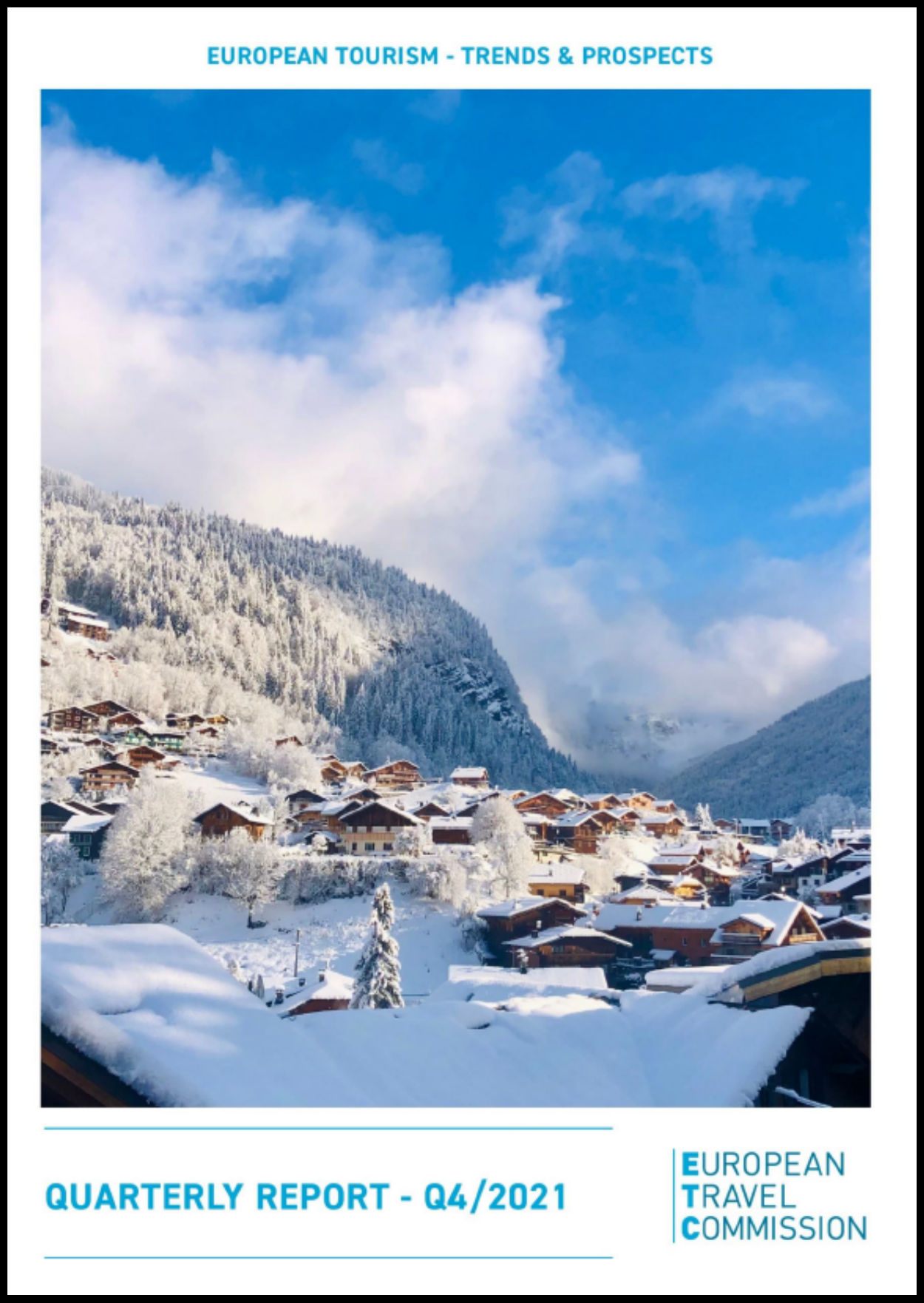Recent Release | 28 Feb 2022
European Tourism 2022: Trends and Prospects (Q4/2021)

Tourism Consulting Team
Tourism Economics


The emergence of the Omicron variant at the year-end, and record-breaking infection rates, brought back mobility restrictions which paused recovery.
2021 data informs estimates of a 62% decrease in tourist arrivals to Europe over 2019 levels, although final data are not yet available. Economic recovery is expected to continue in 2022, but Omicron means growth will be slightly more subdued, at least for the first quarter.
The travel outlook for Europe remains positive, with demand projected to be just 20% below pre-pandemic levels in 2022, fuelled by domestic and intra-European travel demand. Domestic travel is expected to exceed pre-pandemic peaks this year, while rapid intra-regional demand will drive improvement in international.
About the team
Our consulting team at Tourism Economics are the world’s leading analysts of the global tourism and travel sector. They combine their expert insight with our state-of-the-art economic models and tools to answer the crucial questions facing our clients. Lead consultants on the project were:

Dave Goodger
Managing Director, EMEA, Tourism Economics
+44 (0) 1865 268 928

Dave Goodger
Managing Director, EMEA, Tourism Economics
London, United Kingdom
David Goodger is Managing Director, EMEA, Tourism Economics. He has been instrumental in developing the global model of tourism flows and spending, which covers 185 origins and destinations, and he continues to manage regular forecast updates. He also maintains an active role in new product development and consultancy work.
David Goodger is a Director within Tourism Economics and primarily concentrates on tourism demand forecasting and market sizing. He has also taken an active role in further model development for specific purposes, with an emphasis on examining the economic contributions of particular sectors and the impact of different policies. He has conducted a groundbreaking analysis of the business travel sector for the WTTC and the US Travel Association which estimates the return on investment of corporate spending on travel and he has developed models to define destination marketing allocations.
Since joining Oxford Economics in 2000, David Goodger has been involved in a wide range of forecasting and modelling activities. He has been part of the macroeconomic forecasting and the industrial forecasting teams contributing to both regular reports and specific client studies as well as assisting in the development of detailed forecasting and simulation models.
David was educated at the University of Bristol, England, where he gained a first-class degree in Economics with Statistics; and at the London School of Economics and Political Science, England, where he graduated with an MSc in Econometrics and Mathematical Economics.
Related Services

Post
The economic impact of abandoning the WTO
Oxford Economics have been commissioned by the International Chamber of Commerce (ICC) to provide an independent assessment of the economic impact of WTO dissolution. This report details our findings and the assumptions underpinning our analysis.
Find Out More
Post
The economic impact of the sports activities of public service media
This study shows how the sports activities of public service media supported €4.5 billion of GDP and 57,000 jobs across 31 European countries in 2022. The report also highlights wider economic benefits of public service media sports coverage, such as the way in which it leverages sponsorship income for sports bodies.
Find Out More
Post
Global Trade Education: The role of private philanthropy
Global trade can amplify economic development and poverty alleviation. Capable leaders are required to put in place enabling conditions for trade, but currently these skills are underprovided in developing countries. For philanthropists, investing in trade leadership talent through graduate-level scholarships is an opportunity to make meaningful contributions that can multiply and sustain global economic development.
Find Out More